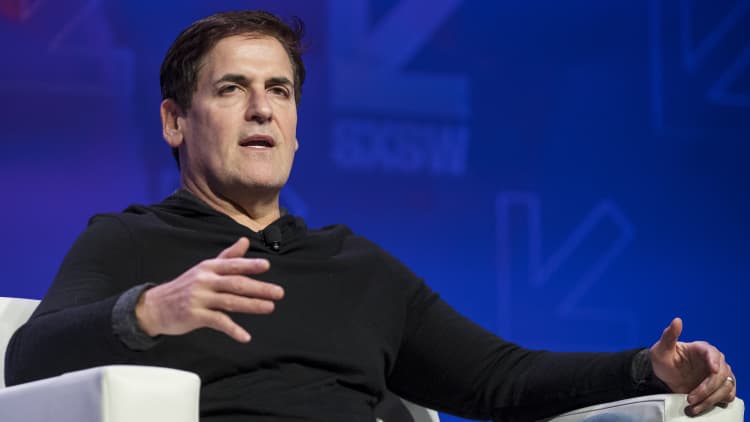There are 2,604 billionaires in the world, and 55.8% of them are self-made.
That's according to the Billionaire Census published Thursday by market research firm Wealth-X.
Taken together, self-made billionaires have a total of nearly $5 trillion.
Another 30.9% of billionaires made at least some of their wealth themselves, according to the report, while 13.3% inherited their wealth entirely.
The data showed a "continuation of the long-term trend in the gradual increase in the proportion of self-made billionaires," says the report, which is based on Wealth-X's own proprietary data and intelligence from Jan. 1 through Dec. 31, 2018. This was "despite a broad weakening of asset markets and more subdued global growth prospects," which the report says "highlights the growing importance of entrepreneurship in creating and preserving substantial wealth."
Source: Wealth-X
In fact, almost all of the current richest billionaires are self-made, from Amazon founder Jeff Bezos, the richest man in the world with a current net worth of more than $155 billion, according to Forbes, to Google co-founders Larry Page (more than $53 billion) and Sergey Brin (more than $52 billion), the 10th and 11th richest respectively, according to Forbes.
However, overall, the number of billionaires in the world and their collective wealth declined in 2018 compared to the year prior, according to Wealth-X.
The number of billionaires fell 150 from 2,754 in last year's report, and their total wealth fell from $9.2 trillion to $8.6 trillion. The draw down was due to "heightened market volatility, global trade tensions and a slowdown in economic growth," Wealth-X says.
Of course, even "self-made" billionaires did not succeed alone.
Bezos has said his own rocket-out-of-the-cannon success with Amazon would not have been possible without the technological advancements that set him up for success.
"I've witnessed this incredible thing happen on the internet over the last two decades. I started Amazon in my garage 24 years ago — drove packages to the post office myself. Today we have 600,000-plus people, millions and millions of customers, a very large company," Bezos said at the Yale Club in New York City in Feb., according to Business Insider.
Bezos continued: "How did that happen in such a short period of time? It happened because we didn't have to do any of the heavy lifting. All of the heavy-lifting infrastructure was already in place for it. There was already a telecommunication network, which became the backbone of the internet. There was already a payment system — it was called the credit card. There was already a transportation network called the US Postal Service, and Royal Mail, and Deutsche Post, all over the world, that could deliver our packages."
At the same event, Bezos said the success of Facebook CEO Mark Zuckerberg was also a direct function of the technological innovation that came before him: "An even more stark example is Facebook. Here's a guy who literally, in his dorm room, started a company — Mark Zuckerberg started a company in his dorm room, which is now worth half a trillion dollars — less than two decades ago," Bezos said.
Zuckerberg quite famously, started Facebook at Harvard in 2004.
Zuckerberg, the fifth richest person in the world with a more than $69 billion fortune, said himself in his 2017 Harvard commencement speech that some amount of his success is due to the freedoms afforded him by his affluent upbringing.
"We all know we don't succeed just by having a good idea or working hard. We succeed by being lucky, too. If I had to support my family growing up instead of having time to code, if I didn't know I'd be fine if Facebook didn't work out, I wouldn't be standing here today," Zuckerberg said in his speech. "If we're honest, we all know how much luck we've had."
Warren Buffett, who founded Berkshire Hathaway and is the fourth richest person in the world with a more than $85 billion net worth, has also spoken about the role luck has played in his success.
"My wealth has come from a combination of living in America, some lucky genes, and compound interest. [Both] my children and I won what I call 'the ovarian lottery,'" Buffett told Christiane Amanpour in 2010. "I was born in the right country at the right time."
See also:
Sam Adams founder: Unless you're a sociopath, being happy is better than being rich

Like this story? Subscribe to CNBC Make It on YouTube!


